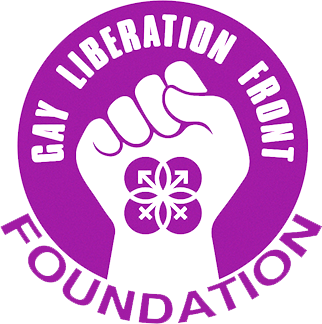How GLF Burst into the World
As told by Martha Shelley
I’m taking two women from Boston on a tour of Greenwich Village. I’m a member of the New York chapter of the lesbian organization Daughters of Bilitis, and the visitors want to start a chapter in their city. It’s a hot Saturday night. The sky is clear, the moon just about full. We’re walking along Christopher Street in Greenwich Village when we encounter a group of young men throwing things at cops.
The Bostonians are taken aback and seem frightened. “What’s that?” one asks.
“Ah, it’s just a riot,” I reply, thinking the guys were protesting the Vietnam War. “We have them all the time.”
I forget about the incident until Monday morning, when I finally get to read the New York Times report: “...police raided a bar...well known for its homosexual clientele... The young men threw bricks, bottles, garbage, a few pennies, and a parking meter at the policemen... the Stonewall Inn, 53 Christopher Street...”
I’d never heard of the Stonewall Inn before, but I’m on fire, inspired by the civil rights movement, and by the antiwar and women’s movement demonstrations that I’d actually participated in. Now it’s our time to rise up. Gay people’s time. I immediately phone Jean Powers, president of the NY DOB chapter. “We gotta have a protest march.”
Jean works in computers and is in the closet. She hesitates. I know she won’t be marching out in public. But then she tells me to talk to the Mattachine Society, the local gay men’s organization. “If they agree, we can jointly sponsor it.”
* * *
After hanging up from the conversation with Jean Powers, I called Dick Leitsch, head of the Mattachine Society. He didn’t seem particularly enthusiastic. He did tell me that his organization was having a meeting at a public auditorium downtown and said I could attend and make my proposal.
When I arrived, the hall was packed: four hundred gay guys, one female Mattachine member, and me. I found myself sitting next to a fortyish guy named Bob Kohler. He spoke passionately about young gays in the streets, some still in their teens, thrown out by their parents for being homosexual. Having no job skills, they earned their living by prostitution and desperately needed help.
When I had my turn to speak and suggested a protest march, Leitsch asked how many people were in favor of it. A forest of hands went up. I think that surprised him, because he was used to being the only public spokesman for gays in the city—everyone else was cowering in the closet. At the end of the meeting, he said that those who wanted to organize it should meet “over in that corner.”
We formed a committee on the spot and agreed to meet the following Saturday at the Mattachine offices. I am fairly sure I was the only woman present. There were eight guys or so, including Bob Kohler and another man, Marty Robinson. It was a hot afternoon, and we were drinking cold beers and in high spirits—actually, a little tipsy. At one point someone uttered the words, “Gay Liberation Front.”
I whacked the table a couple of times and hollered, “That’s it! That’s it! We’re the Gay Liberation Front!”
